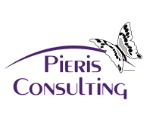The Path to Success is Rarely Straight or Level

By Jarett Rodriguez
Plateaus are inevitable. Crises are likely. How your organization responds will determine its fate.
Have you ever looked at the lifecycle of a successful organization? Most organizations experience plateaus along the path. It’s inevitable. And even the best organizations face major challenges. Success is found by overcoming the causes of those plateaus and pressing forward.
I spent 6 years with the Stephenson Entrepreneurship Institute at my alma mater of LSU. Prior to that, I had been involved in my own startups where many lessons were learned through experience. While at LSU though, I not only had the privilege of advising many entrepreneurs, I also advised corporate leaders and high potential employees. Regardless of industry, the successful businesses all had similarities. They all had to look for ways to continuously evolve, adapt based on market feedback, challenge their thinking, and inspire people to work together towards the vision.
Well-known author Michael Gerber and I (only known by family, a couple of friends, and my dog) spent time together championing support for entrepreneurs on Capitol Hill. Michael has built a career helping entrepreneurs build businesses of real value. A lot can be learned from Michael. One of the key things he’s taught us over the years is that “Many entrepreneurs fail because they are working IN their business rather than ON their business.” If you’re going to scale and get through the plateaus, you’re going to have to let go of some things and empower others to get things done. Be a mentor, coach, or guide; don’t be a micromanager. Companies are made up of people. If those people are passionate about the company’s purpose and understand what you’re trying to achieve, you’ll be better positioned to overcome challenges.
“Building a World Class Company is a commitment to the integration of passion, purpose, and practice.” ― Michael E. Gerber, E-Myth Mastery: The Seven Essential Disciplines for Building a World Class Company
In his book, The Startup Way, Eric Ries tells us that established organizations usually lack the ability to act on new ideas as a result of the built-up bureaucracy. In today’s fast-moving globally competitive environment a new style of leadership is required. If you want your business to thrive long term, you need to empower people to think entrepreneurially and become good at adapting to change. Create an environment that encourages learning by trying things, analyzing feedback, sharing knowledge, and adjusting accordingly. Leaning on his Air Force days, my partner Stan Fleming would probably describe it as the OODA (Observe – Orient – Decide – Action) loop when talking about existing businesses overcoming challenges.
“Being comfortable can hurt your creative entrepreneurial spirit.” ― Blake Mycoskie, Founder of TOMS Shoes and author of Start Something That Matters
One of the programs I served as a mentor to at LSU was called The Workplace Challenge. Supervisors, managers, and executives from various industries took part in this program. These business leaders shared a problem or opportunity their business was facing with me. We’d dig in together to find causes of the problem or to prioritize the opportunities to get to a much deeper understanding of the situation. The ultimate goal of this was to coach them into a new mindset of problem-solving or opportunity seizing that would grow them as leaders and provide benefit to their companies. Together, we’d derive a list of benefits and risks associated with their recommendations backed by research. Gathering the data available to have better situational awareness was key. In the end, we’d identify stakeholders from whom they’d need to get buy-in and I’d coach them on pitching their informed recommendations to the stakeholders.
Through that effort, I was able to dive deep into industries I hadn’t worked in and coach great people through getting unstuck by looking at things through an entrepreneurial lens. Over the years, it’s been incredibly fulfilling to see the outcomes of those actions we recommended lead to positive outcomes such as new methods of revenue generation for a non-profit, boosting production of the operations team of a manufacturing company, and reducing service delivery costs for a telecommunications company. We accomplished these things by listening to, learning from, and leveraging good people.
Now I’m proud to be part of Pieris in which I’m partnered with brilliant, experienced, empathetic people. Our unstated purpose is to help organizations solve those workplace challenges and get unstuck. We get to bring our experiences and unique perspectives into play to solve problems for companies around the world that need support in getting past something.
About the Author – Jarett Rodriguez is a partner and VP at Pieris Consulting. He spent 6 years as the Associate Director of the Stephenson Entrepreneurship Institute at LSU where he taught innovation, strategy, entrepreneurship and was often an invited speaker on those topics. Jarett was recently named as one of “Two People to Watch on Austin’s Tech Scene” by the Austin Business Journal. He earned an MBA in strategy, an MEd in physiology, and a BS in entrepreneurship.
About Pieris Consulting – Pieris focuses on overcoming challenges and accelerating to better outcomes for businesses. With clients around the globe, we leverage our eclectic and extensive entrepreneurial expertise to maximize business situational awareness and optimize decision making. Pieris has three primary areas of focus – Product Management & Marketing; Organizational or Operational Situational Awareness; Solutions Integration & Project Delivery. Pieris Consulting is part of a family of companies that includes Pieris Technology Solutions Australia, Garli Pty Ltd, and Peridot Global Solutions (formerly Forge Aerospace).

